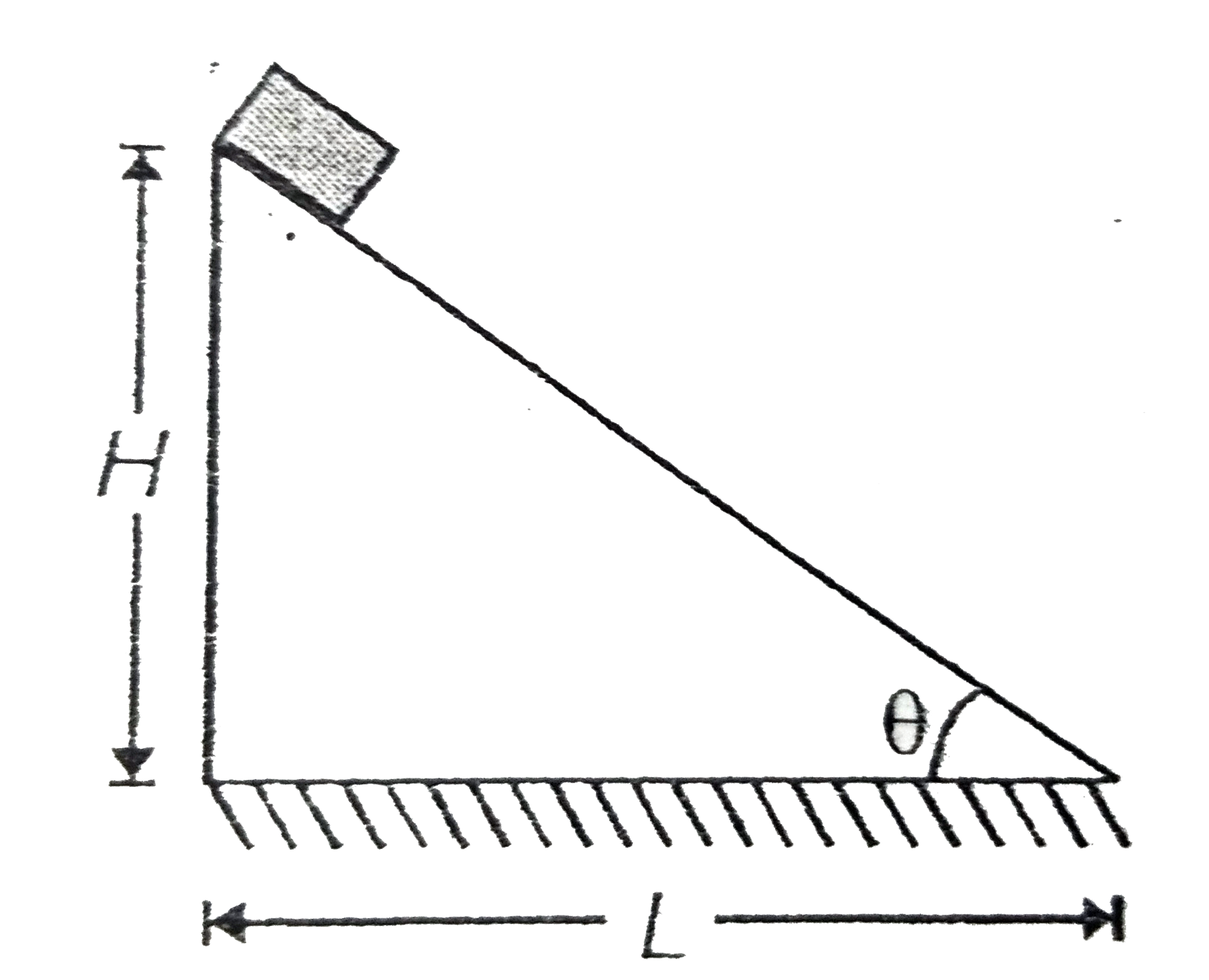State the work-energy theorem
Step-by-Step Solution:
1. Understanding the Work-Energy Theorem: The work-energy theorem is a fundamental principle in physics that relates the work done on an object to its kinetic energy.
2. Statement of the Theorem: The theorem states that the net work done by all the forces acting on an object is equal to the change in its kinetic energy.
3. Mathematical Representation: This can be expressed mathematically as:
W=ΔKE
where W is the work done, and ΔKE is the change in kinetic energy.
4. Detailed Equation: The change in kinetic energy can be further detailed as:
W=KEfinal−KEinitial
where KEfinal is the kinetic energy of the object at the final state, and KEinitial is the kinetic energy at the initial state.
5. Vector Form: In vector form, the work done can also be expressed as:
W=∫F⋅dl
where F is the force applied, and dl is the infinitesimal displacement.
Final Statement: Therefore, the work-energy theorem can be succinctly stated as: "The net work done by the forces on an object is equal to the change in its kinetic energy."
---
W=ΔKE
where W is the work done, and ΔKE is the change in kinetic energy.
W=KEfinal−KEinitial
where KEfinal is the kinetic energy of the object at the final state, and KEinitial is the kinetic energy at the initial state.
W=∫F⋅dl
where F is the force applied, and dl is the infinitesimal displacement.
Topper's Solved these Questions
- WORK ENERGY AND POWERBOOK - ICSECHAPTER - WORK ENERGY AND POWEREXERCISE - EXERCISE-2(B) (MULTIPLE CHOICE TYPE )
2 Videos
- WORK ENERGY AND POWERBOOK - ICSECHAPTER - WORK ENERGY AND POWEREXERCISE - EXERCISE-2(B) (NUMERICALS)
23 Videos
- WORK ENERGY AND POWERBOOK - ICSECHAPTER - WORK ENERGY AND POWEREXERCISE - EXERCISE-2(A) (NUMERICALS)
16 Videos
- CALORIMETRYBOOK - ICSECHAPTER - CALORIMETRYEXERCISE - EXERCISE-11(B) (NUMERICALS)
15 Videos
Similar Questions
Knowledge Check
The work-energy theorem states that the change in
Akinetic energy of a particle is equal to the work done on it by the net forceBkinetic energy of a particle is equal to the work done by one of the forces acting on itCpotential energy of a particle is equal to the work done on it by the net forceDpotential energy of a particle is equal to the work done by one of the forces acting on it
Assertion :− According work energy theorem net work done on a body is equal to change in its kinetic energy.
Reason :− The work energy theorem is independent of Newton's second law.
View SolutionAsseration : Work-energy theorem can be applied for non-inertial frames also.
Reason : Earth is a non-inertial frame.
View SolutionYou are reshelving books in a library. You lift a book from the floor to the top shelf. The kinetic energy of the book on the floor was zero and the kinetic energy of the book on the top shelf is zero, so no change occurs in the kinetic energy even though you did some work in lifting the books. Is the work-kinetic energy theorem violated?
View SolutionA small blockofmass 'm' is released from rest at the top of a rough inclined plane as shown The coefficient of friction between the block and inclined plane is 'μ' Using work-energy theorem, find the speed of block as it passes the lowest point.

View SolutionState exterior angle theorem
View SolutionIs work energy theorem valid in noninertial frames?
View SolutionIs work energy theorem valid in noninertial frames?
View Solution
